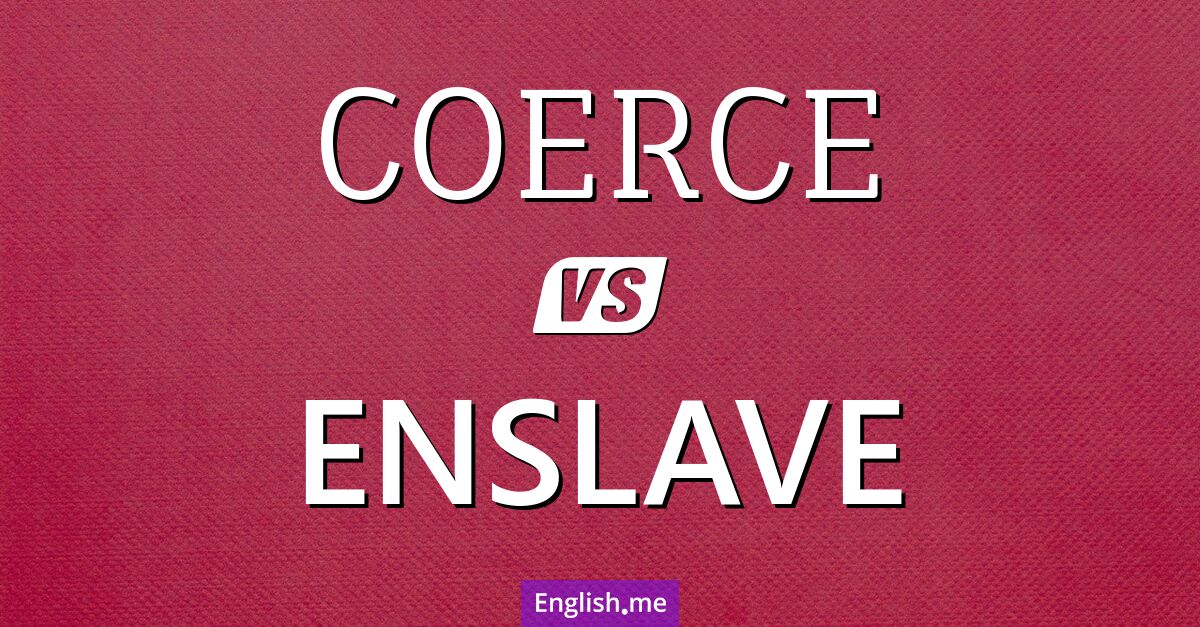"Coerce" vs. "enslave": where force meets total control
Reviewed and edited by  Lloyd Cooper 07/06/2025, 15:38
Lloyd Cooper 07/06/2025, 15:38
English.me team member

 What is similar?
What is similar?
Both "coerce" and "enslave" involve forcing someone to do something against their will, removing or severely limiting their freedom.
 What is different?
What is different?
"Coerce" generally refers to using threats or force to make someone act in a certain way, often in a specific situation, while "enslave" means to make someone a slave, taking away their freedom entirely and usually for an extended period or permanently.
 Which one is more common?
Which one is more common?

 Examples of usage
Examples of usage
Coerce- She tried to coerce him into signing the contract.
- The criminal was coerced into making a confession.
- The invaders sought to enslave the captured population.
- It is wrong to enslave another human being under any circumstances.

 English
English español
español française
française italiano
italiano deutsche
deutsche 日本語
日本語 polski
polski česky
česky svenska
svenska Türkçe
Türkçe Nederlands
Nederlands